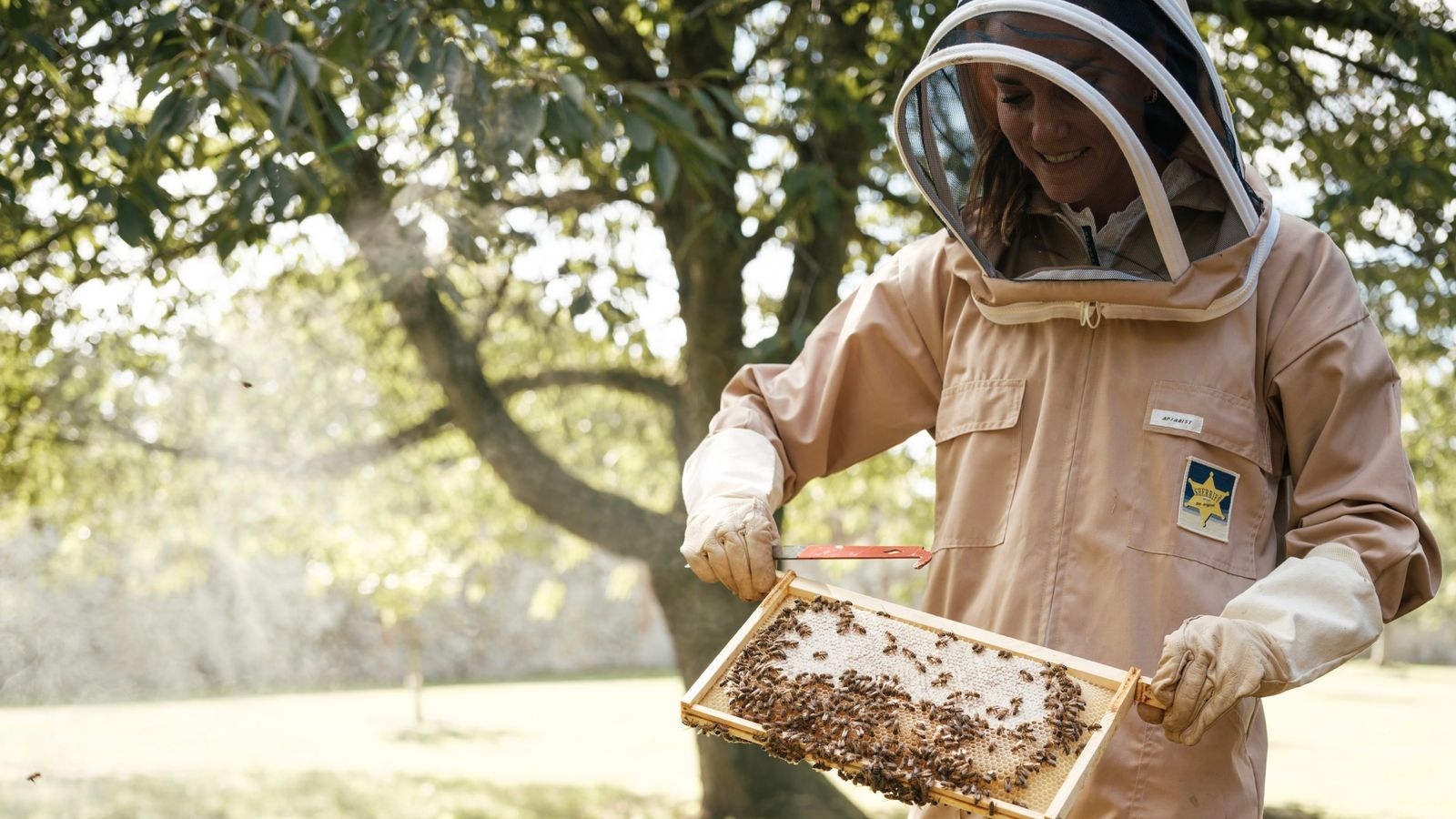The Princess of Wales has shared a picture of herself tending a hive while wearing a beekeeper’s outfit in recognition of the crucial role played by the industrious pollinators.
The image was tweeted to mark World Bee Day on the official account Kate shares with the Prince of Wales.
Royal residences are home to a number of beehives, while the Queen is also a keen apiarist with the honey sold in aid of charity.
The photograph of Kate in full protective gear was accompanied by a caption, which said: “We are buzzing about #WorldBeeDay.
“Bees are a vital part of our ecosystem and today is a great opportunity to raise awareness of the essential role bees and other pollinators play in keeping people and the planet healthy.”
Pictures have also been published of the royal beekeepers at work at Buckingham Palace, which is home to four hives.
There are a further two hives in the garden of Clarence House, where the King and Queen still live, while renovation work is carried out at the palace.
The hives produced more than 300 jars of honey last year for the royal kitchens, and it was often served in honey madeleines, as a filling for chocolate truffles or in honey and cream sponge.
The Queen also keeps bees at Raymill, her six-bedroom retreat in Lacock, Wiltshire, 17 miles from the King’s Highgrove home.
Please use Chrome browser for a more accessible video player
Read more:
The honey bee population may have been saved – but now there is a sting in the tail
Princess of Wales loses game to Olympic legend
King and Queen carry out first engagement together since coronation
During a visit to Launceston, Cornwall, last summer she met honey-producers selling jars in the town square, and told them she was a hands-on beekeeper and had only lost one colony during the previous winter.
Honey produced by the Queen’s bees is sold at Fortnum & Mason to raise funds for charity.
Be the first to get Breaking News
Install the Sky News app for free
This year’s recipient is Nigeria’s first sexual assault referral centre, which the Queen supports as patron.
She is also president of Bees for Development, a charity training beekeepers and protecting bee habitats in more than 50 countries.





